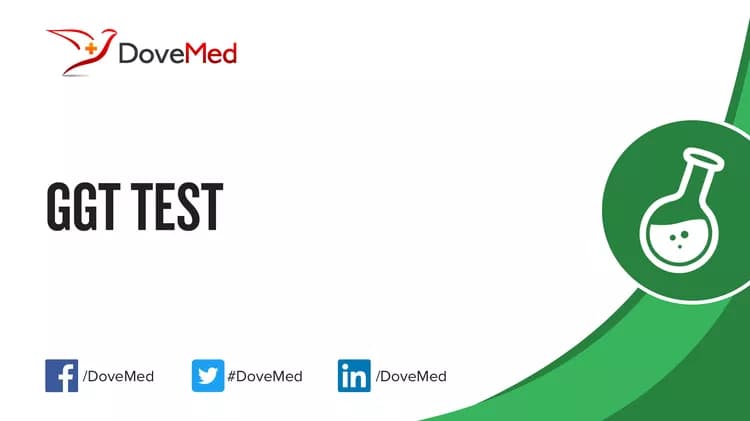What are the other Names for this Test? (Equivalent Terms)
- Gamma-Glutamyl Transferase (GGT) Test
- Gamma-Glutamyl Transpeptidase (GGTP) Test
- Gamma-GT Test
What is GGT Test? (Background Information)
- Gamma-glutamyl transpeptidase (GGT) is an enzyme present in the liver, gall bladder, kidneys, spleen, and pancreas. The main source of the enzyme in blood, however, is the liver
- Any injury to the liver or the bile ducts (tubes carrying bile from liver to the intestine), results in elevated GGT levels in blood
- The enzyme is a very sensitive marker for liver disease, but is not specific for any particular condition. It may also be increased in diabetes, pancreatitis, hypertension, and acute coronary syndromes (sudden chest pain due to lack of blood supply to the heart and consequent heart muscle damage)
- GGT Test for GGT levels can help in diagnosing:
- Liver disease
- Bile duct blockage
- To differentiate between a bile duct condition and bone disease, as both these disorders may cause increased levels of alkaline phosphatase (ALP) in blood
- GGT levels are also increased in alcoholics
What are the Clinical Indications for performing the GGT Test?
Indications for GGT Testing include:
- Follow-up to elevated alkaline phosphatase (ALP) levels, to differentiate between a bone disorder and a liver or bile duct disease
- A GGT may be ordered along with other liver function tests, when there are symptoms of a liver disease. These symptoms may include:
- Abdominal pain
- Abdominal swelling
- Jaundice
- Itching
- Nausea/vomiting
- Loss of appetite
- Light/clay colored stools
- Dark urine
- Following an alcohol treatment program, the testing is performed to assess compliance
How is the Specimen Collected for GGT Test?
Sample required: Blood
Process: Blood sample is drawn through a needle inserted into the vein (arm).
Preparation required:
- It is advised to fast for at least 8 hours prior to testing; GGT levels tend to fall after eating
- It is also necessary to avoid alcohol and certain drugs, as instructed by the physician, prior to testing
What is the Significance of the GGT Test Result?
- The normal blood levels of GGT, called the reference range for GGT, may vary slightly from lab to lab. Hence, most lab reports come with a reference range, which is used in that particular centre. One such reference range, in wide use, is 0-51 international units per liter (IU/L)
- Elevated levels of GGT are found in conditions, such as:
- Bile duct obstruction
- Hepatitis
- Liver diseases, such as cirrhosis, or tumors, or liver damage from drug toxicity
- Alcohol abuse
- Diabetes
- Pancreatitis
- Heart failure
The laboratory test results are NOT to be interpreted as results of a "stand-alone" test. The test results have to be interpreted after correlating with suitable clinical findings and additional supplemental tests/information. Your healthcare providers will explain the meaning of your tests results, based on the overall clinical scenario.
Additional and Relevant Useful Information:
Certain medications that you may be currently taking may influence the outcome of the test. Hence, it is important to inform your healthcare provider, the complete list of medications (including any herbal supplements) you are currently taking. This will help the healthcare provider interpret your test results more accurately and avoid unnecessary chances of a misdiagnosis.
Drugs or substances that can increase GGT levels include:
- Phenytoin
- Phenobarbital
- Carbamazepine
- NSAIDs
- Alcohol
- Lipid lowering agents
- Testosterone
Drugs that can lower GGT levels include:
- Oral contraceptive pills
- Clofibrate
Certain medications that you may be currently taking may influence the outcome of the test. Hence, it is important to inform your healthcare provider, the complete list of medications (including any herbal supplements) you are currently taking. This will help the healthcare provider interpret your test results more accurately and avoid unnecessary chances of a misdiagnosis.
Related Articles
Test Your Knowledge
Asked by users
Related Centers
Related Specialties
Related Physicians
Related Procedures
Related Resources
Join DoveHubs
and connect with fellow professionals


0 Comments
Please log in to post a comment.